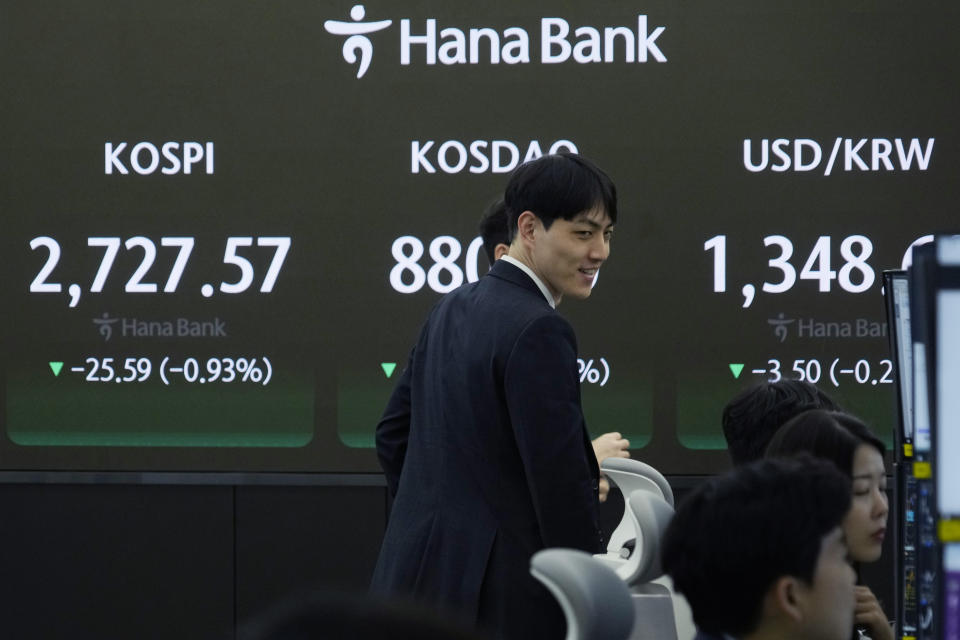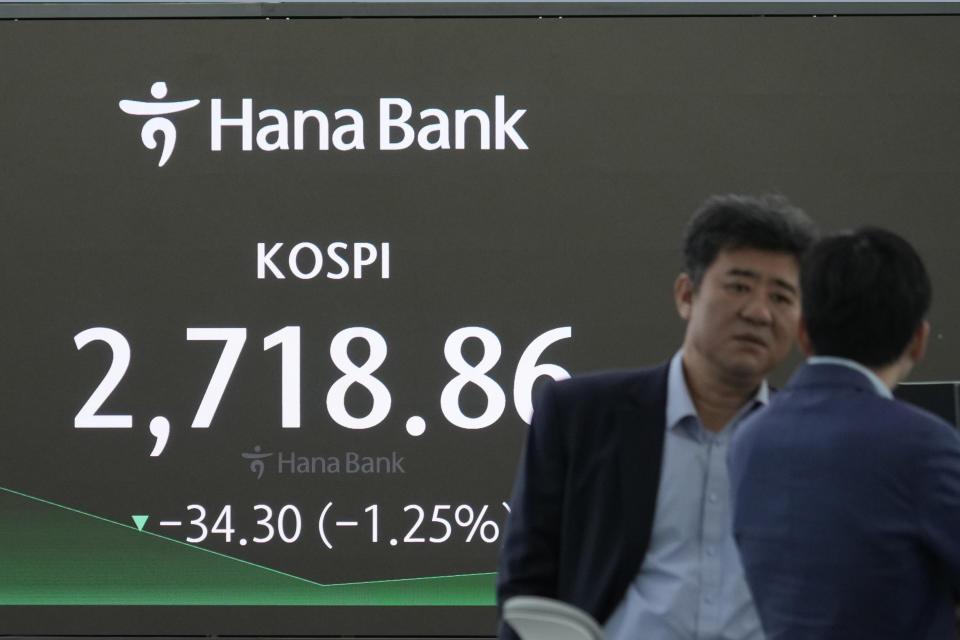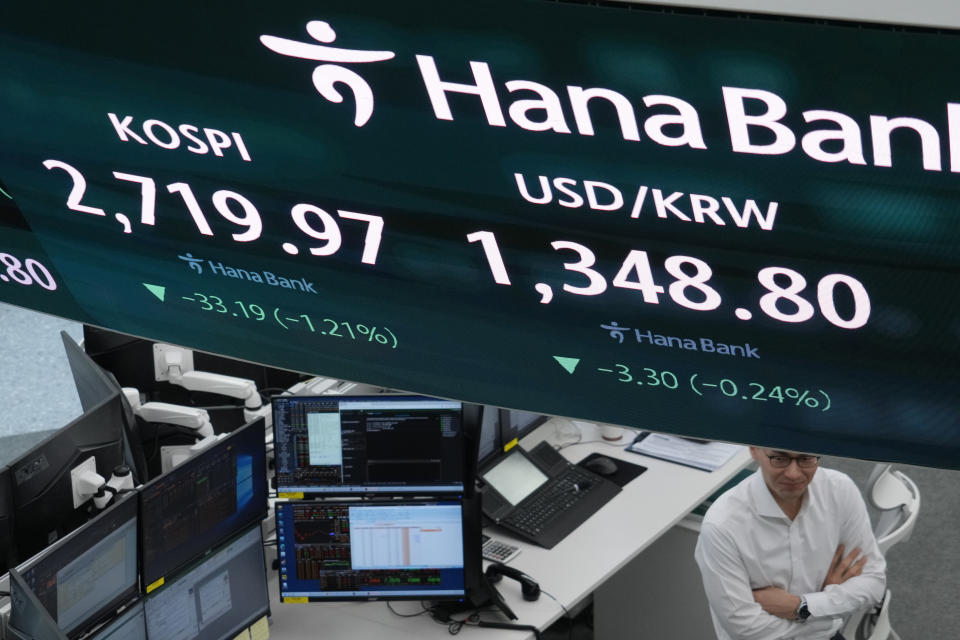In This Article:
TOKYO (AP) — Asian shares mostly declined Wednesday after Wall Street sank, hitting the brakes on what’s been a nearly unstoppable romp.
Japan's benchmark Nikkei 225 slid 0.8% in morning trading to 39,511.88. Sydney's S&P/ASX 200 slipped 1.3% to 7,788.20. South Korea's Kospi dropped 1.3% to 2,716.65. Hong Kong's Hang Seng lost 0.6% to 16,832.52, while the Shanghai Composite fell 0.3% to 3,066.66.
Analysts said worries were growing that what rattled Wall Street might spread to Asia, despite recent relatively positive economic signs from China.
“Investors are grappling with the possibility that this turbulence could mark the beginning of a more significant correction in the markets,” said Stephen Innes, managing partner at SPI Asset Management.
China has an ambitious target of around 5% economic growth this year, seeking to put behind recent troubles in the property sector and the lingering effects of the disruptions that came from the pandemic.
On Wall Street, the S&P 500 fell 37.96 points, or 0.7% to 5,205.81 for its worst day in four weeks. It was its second straight drop after setting an all-time high to close last week.
Other indexes did worse. The Dow Jones Industrial Average lost 396.61 points, or 1%, to 39,170.24 and likewise pulled further from its record. The Nasdaq composite fell 156.38, or 1%, to 16,240.45, and the small stocks in the Russell 2000 index tumbled 1.8%.
Health insurance companies led the market lower on worries about their upcoming profits after the U.S. government announced lower-than-expected rates for Medicare Advantage. Humana tumbled 13.4%. Tesla, meanwhile, dropped 4.9% after delivering fewer vehicles for the start of 2024 than analysts expected.
One of the big reasons the U.S. stock market has screamed higher since late October is the expectation that the Federal Reserve will cut interest rates several times this year. The central bank itself has hinted as much, and an easing of rates would relieve pressure on both the economy and financial system.
But Fed officials have also said they need further confirmation inflation is heading sustainably down to their 2% target before acting. A surprisingly strong report on U.S. manufacturing Monday, which showed a return to growth after 16 straight months of contraction, hurt those expectations.
It’s the latest evidence of a remarkably resilient U.S. economy. That keeps people employed and corporate profits humming, but it could also add upward pressure on inflation. Progress there has become bumpier recently, with inflation reports this year coming in hotter than expected.


